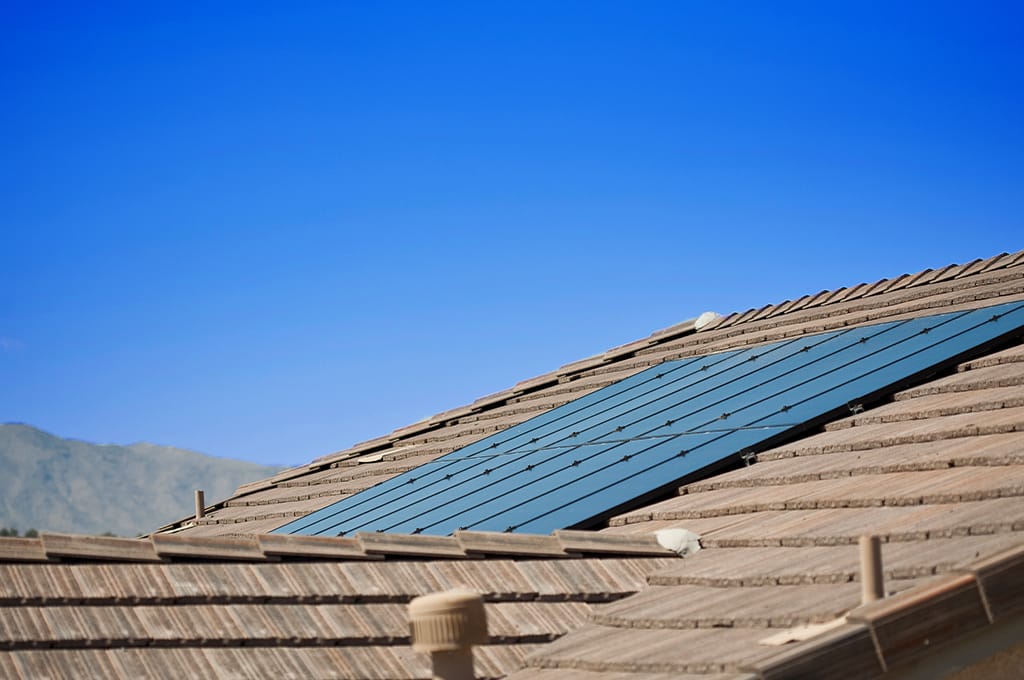On August 16,2022, President Biden signed and put into law the first comprehensive climate legislation in U.S. history, The Inflation Reduction Act of 2022 (IRA). While the historic law will impact everything from healthcare to manufacturing, we want to focus on its benefits for homeowners and clean energy.
What the Inflation Reduction Act means for homeowners
The IRA will invest about $300 billion in clean energy and climate reform, resulting in many benefits and incentives for homeowners looking to go solar and/or invest in making their homes more energy-efficient overall.
– Going Solar: The Federal Solar Investment Tax Credit is now 30% –
Now that the IRA is law, going solar means you’ll qualify for a 30% Tax Credit. Before this increase, the solar Federal Tax Credit was 26% and was set to drop to 22% in 2023. Under the IRA, the tax credit will remain at 30% for the next ten years. Even better, if you already went solar in 2022, the 30% tax credit will be retroactive for any solar system installed on or after January 1st, 2022! That’s a huge win for homeowners who have already gone solar this year.
Overall, the new tax credit increase is an enormous assist for homeowners looking to invest in rooftop solar for their homes.
The IRA's New Rooftop Solar Incentives: Doing the Math
How much can you save with the 30% solar Tax Credit? Let’s say you purchase a rooftop solar system for $30,000; with the new 30% rate, you’ll receive a federal tax credit of $9,000, a substantial increase versus the $7,800 you would have received under the previous rate of 26% or the $6,600 you would have saved with a 22% tax credit.
In addition to the substantial 30% Tax Credit, homeowners will also receive an additional $1,200 for any electrical upgrade. We commonly see electrical upgrades are required for larger solar systems, more than 10kW on average. This credit will be available for homeowners who upgrade to a 200amp or higher, beginning in 2023.

If you are wondering what the incentives will look like in the future, check out the current trajectory and plan for the Solar Federal Tax Credit through 2034.

The time has come to save big with solar. When you go solar now, you’ll save thousands of dollars on your home’s investment while saving money on your electric bills for as long as you own your home!
How can homeowners file the 30% Federal Solar Tax Credit
While we strongly recommend that you consult with your CPA or tax professional for qualifiations and filling of the tax credit as they apply to your specific circumstances, here are some basics to know about how to qualify for the 30% solar tax credit:
– The solar system will be installed between 2022 and 2031.
– You are the owner of the solar system.
– You have taxable income on your U.S. taxes.
The Arizona State Tax Credit
The Arizona solar tax credit is 25% of the total system cost, up to $1,000 and can be used toward state income tax deductions. Keep in mind that you can only use the Arizona Solar Tax Credit one time. This State Tax Credit can also be used in conjunction with the Federal Tax Credit and is a great additional savings for homeowners going solar.
There's no better time to go solar!
With the new 30% solar Investment Tax Credit and Arizona’s State Tax Credit, now is the opportune time to invest in rooftop solar for your home.
When you’re ready, the American Solar & Roofing team, Arizona’s longest-serving solar installer, is here to support you! If you have questions or want a quote, you can reach our team of experts at 480-994-1440 or fill out this contact form below.
And a HUGE thank you to all our existing and past customers!
If you have purchased solar from us before this year, please know how thankful and grateful we are for your support. Your investments and support for solar energy pioneered the path that proved residential rooftop solar is not only viable but a transformative energy solution that is here to say. Your support paved the way for Congress and our President to act on making vital, generational investments in solar now. Know that U.S. history’s most significant climate bill would not have passed without you.






